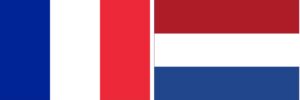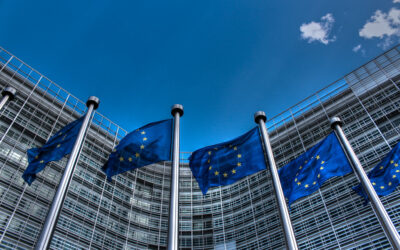
As mentioned in the last week’s article, two founding members of the European Union, the Netherlands and France, have a long history of cooperation and conflict dating back to the 17th century. The two countries share a border division in the Caribbean island of Saint Martin, aspect which encouraged their cooperation in the last decade, especially after the development plan for the Saint Martin island. The focus of this week’s article is the economic relations between the two countries and their corporate environment.
The economic and development cooperation between the two countries intensified in 2013 when the Institut Néerlandais in Paris, a project that France and the Netherlands started in the 1900s to promote each other’s cultures, has ended. Therefore, it was decided to make an agreement where they would work towards mutual development and support for domains such as traffic & transport, sustainability, water & waste management, culture and the economy.
Following the challenges posed by the COVID-19 crisis, trade between France and the Netherlands experienced a robust recovery in 2021, reaching 46.7 billion euros. This marked a remarkable 21% increase compared to the preceding year’s trade volume, which stood at 38.6 billion euros. Importantly, trade not only rebounded but also surpassed the pre-pandemic levels of 2019, which were at 42.8 billion euros.
French customs data reveals that the Netherlands holds a significant position in France’s trade landscape, ranking as the eighth-largest customer and the seventh-largest supplier. The Netherlands accounts for 4% of France’s exports and 4.8% of its imports. On the flip side, in 2021, France emerged as the third-largest buyer and the seventh-largest supplier to the Netherlands, contributing to 8.1% of Dutch exports and 3.6% of imports. This recovery has primarily favoured the Netherlands, resulting in an expansion of France’s trade deficit, which now stands at -8.3 billion euros, compared to -6.7 billion euros in 2020 and -7.7 billion euros in 2019.
Cross-investment forms the second pillar of these economic ties. In 2020, the Netherlands ranked as the second-largest host country for French foreign investments, attracting a substantial 193.6 billion euros. These figures underline the Netherlands‘ allure, particularly with respect to its favourable tax and regulatory environment, connectivity, and high-quality human resources. French presence is notable, with nearly 843 subsidiaries of French companies employing around 137,000 people, primarily in sectors such as transportation (e.g., Air France KLM, Transdev, Alstom, Renault), energy (e.g., Engie, Total, Air Liquide, Legrand, Sonepar, Schneider), waste management, circular economy (e.g., SUEZ, Véolia), and the agri-food sector (e.g., Danone).
Conversely, there are approximately 1,000 Dutch companies operating in France, employing over 190,000 individuals. In 2020, the Netherlands ranked as the fifth-largest foreign investor in France, with a foreign investment stock of nearly 94.3 billion euros, constituting 12% of the total. This reflects the strengths of the Dutch economy, with key sectors including agri-food (e.g., Heineken, Wessanen, Refresco, Hendricks Genetics, Plukon), business services (e.g., Randstad), retail (e.g., Action, Hema, Zeeman, PicNic), chemical/pharmaceutical industry (e.g., SHV, Akzo-Nobel), medical systems (e.g., Philips), logistics and transport (e.g., TNT), and financial services (e.g., ABN AMRO).
In 2021, France registered 103 investment decisions originating from the Netherlands, representing a substantial increase of 22% compared to 2020. A majority of Dutch investment projects in France are concentrated in the private services sector, with manufacturing accounting for 17% of projects and 21% of employment opportunities. These projects have been distributed across all regions in Metropolitan France, with Île-de-France being the primary destination for investment projects (comprising 20% of registered projects), followed by Auvergne-Rhône-Alpes (12%) and Hauts-de-France (11%). To illustrate, two notable Dutch investment initiatives include the expansion of Basic Fit’s fitness network and the establishment of a pilot site in Hauts-de-France, along with the setup of three distribution centres for the online supermarket PICNIC, resulting in the creation of 360 jobs. Furthermore, The Netherlands France Chamber of Commerce notably contributes to strengthening the economic and corporate relationships between France and The Netherlands by connecting Dutch companies to France.
For next week’s article the focus shifts more to the further east and will delve into the history between France and South Korea.
References
Ambassade de France aux Pays-Bas. (2022, June 10). Economic relations. Retrieved from French Embassy in The Hague: https://nl.ambafrance.org/Economische-betrekkingen
IAMEXPAT. (2013, February 13). Relations between the Netherlands and France in flux. Retrieved from IAMEXPAT: https://www.iamexpat.nl/expat-info/dutch-expat-news/relations-between-netherlands-and-france-flux
NFFC. (2023). NFFC Home Page. Retrieved from NFFC: https://nfcc.fr/



